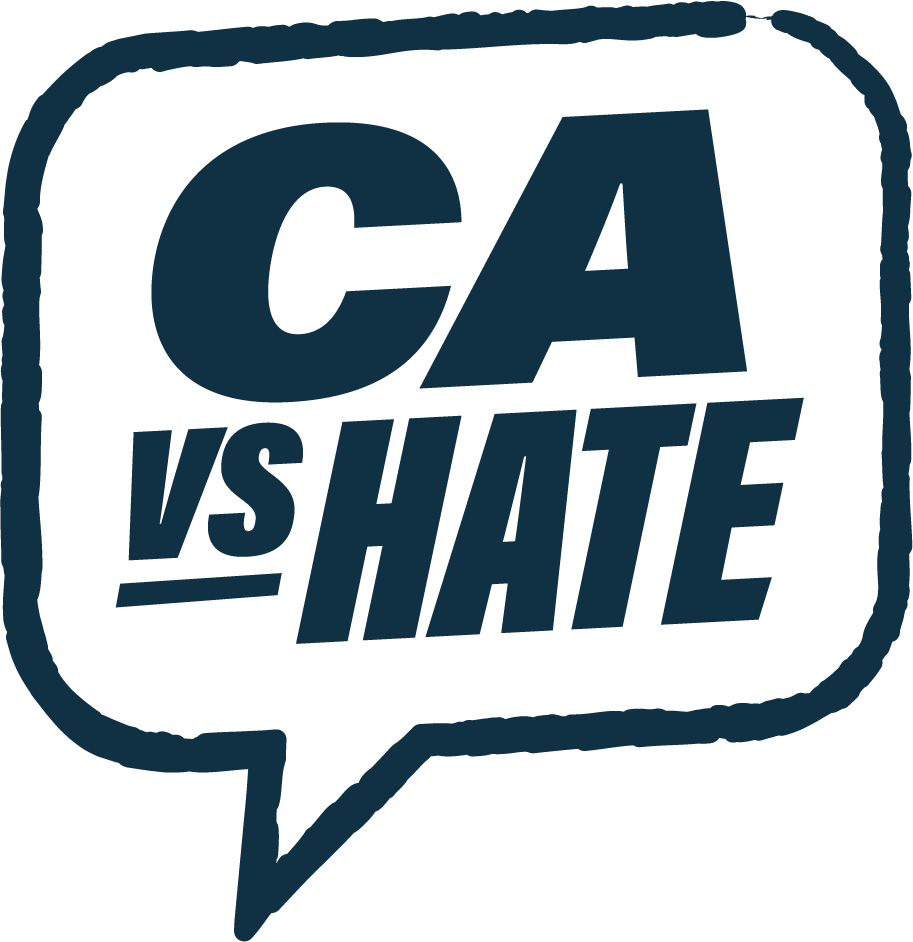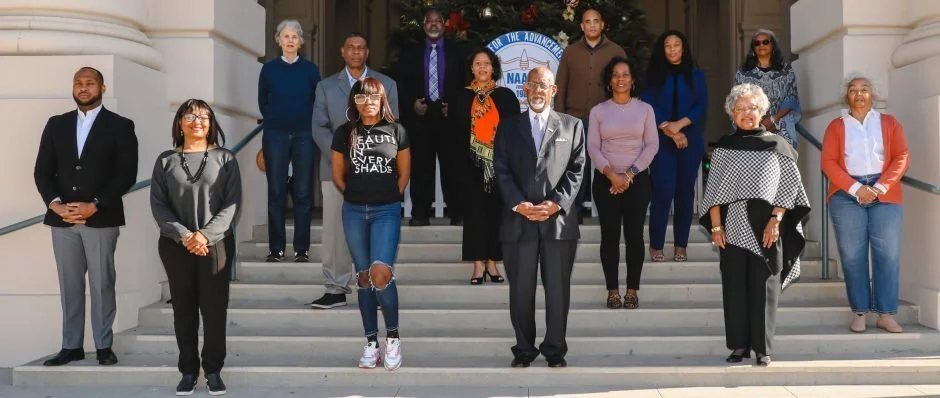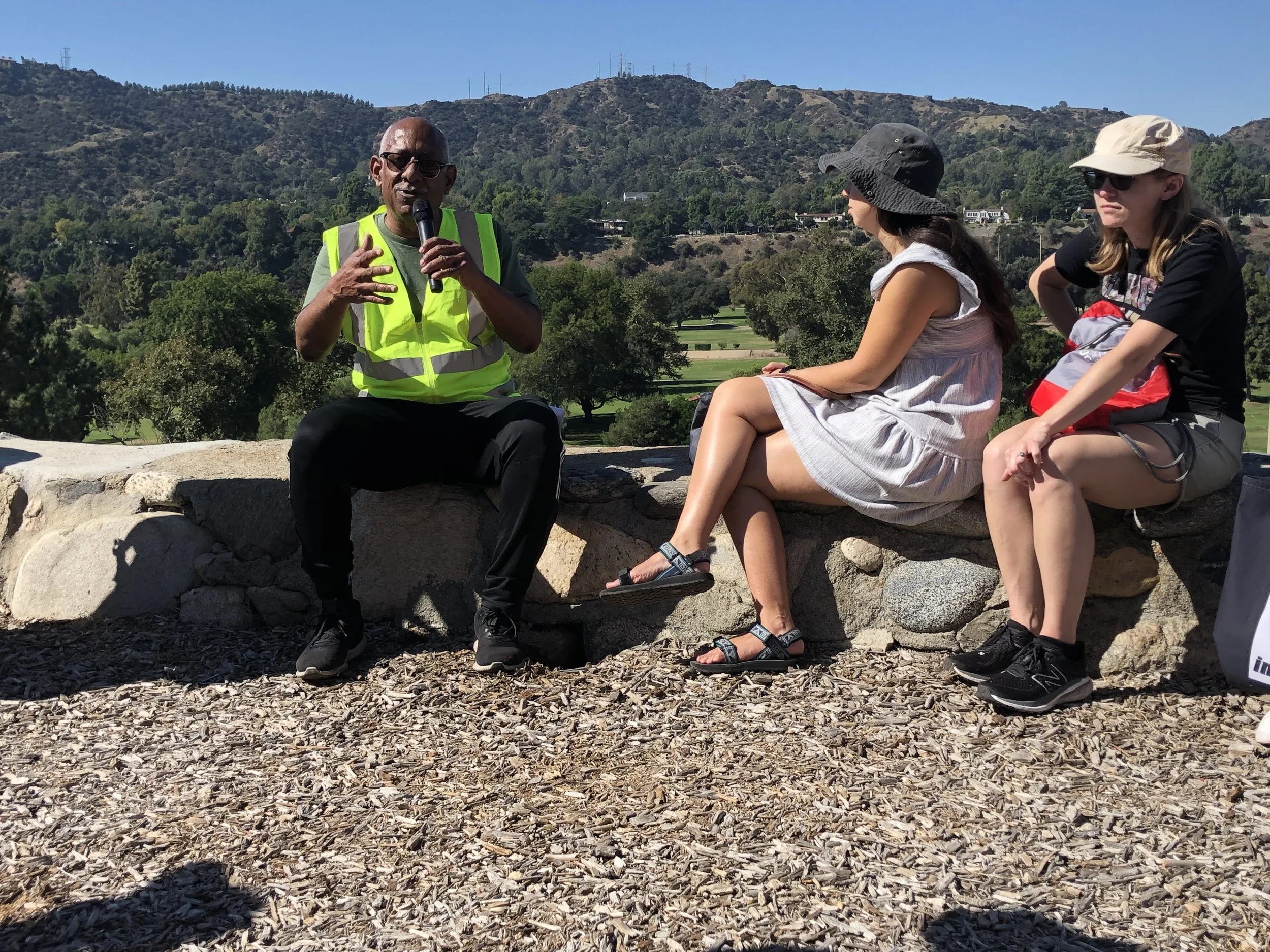Honoring Black History Month: Q&A with NAACP Pasadena President Allen Edson
This week, we connected with NAACP Pasadena President Allen Edson about recognizing Black History Month, the NAACP Pasadena’s legal programs, and the increase in hate in CA, specifically how the Black community has been targeted.
Recent reports show how the Black community is confronted by hate and discrimination. The 2022 LA County Hate Crime Report showed that African Americans were again overrepresented and made up 53% of racial hate crime victims, though they represent just 9% of the county’s total population. California's hate crime report shared similar findings, where Black people were targeted in 50.2% of racial bias hate crimes in 2022. The FBI also recently released a special report on hate crimes in schools, highlighting incidents of racial discrimination, harassment, and violence targeting Black students. In 2022, data shows 66% of the race-based hate incidents that occurred in U.S. schools that year targeted Black children.
All of this points to the urgent need for comprehensive policies and support systems to ensure the safety and well-being of Black Californians. That’s part of why CA vs Hate partners with impactful organizations like NAACP Pasadena to offer support & resources for those who report hate. Read on to learn more about how the NAACP Pasadena branch supports the Black community in Southern California and beyond.
* * *
What are the core objectives for NAACP in Pasadena, and in California more broadly?
Our mission is to achieve equity, political rights, and social inclusion by advancing
policies and practices that expand human and civil rights, eliminate discrimination, and accelerate the well-being, education, and economic security of Black people and all persons of color. Our core objectives are Education, Economic Development, Heath, and Climate Environmental Justice.
The NAACP Pasadena Branch
What are some of the main ways in which the Black community has been confronted by discrimination, hate, or bigotry in recent years? How has that changed over time?
Some examples include people entering business establishments using loud talk, scaring store patrons, placing feces in doorways, slow, or no service. Others include being denied employment, harassment, and profiling by the police department, lack of respect etc.
The recent LA County Hate Crime Report demonstrated that African Americans were again overrepresented and made up 53% of racial hate crime victims, though they represent just 9% of the County’s total population. California’s statewide report shared similar findings, where they represented the victims in 50.2% for racial bias hate crimes in 2022. How does this impact your work and what do you see as necessary systemic changes to address hate against the Black community?
We have community residents that complain, complain, and complain about issues regarding hate crimes or incidents. Sometimes it is hard to get straight answers and it seems filing lawsuits is
the only way to get satisfaction for many people. People feel that nothing will happen if they file a complaint, so they don't do it. So far we have received excellent resources from the CA vs Hate program.
President Allen at the Pasadena African American History Walk
NAACP branches have a long-established practice of providing support to people targeted for discrimination through their legal redress programs. As one of CA vs Hate's partners that provides resources and care to those who report hate, can you walk us through the services and care you provide to a victim or witness of an act of hate?
We currently have a complaint process. We have a complaint form that can be completed online and submitted directly to our office for review by our Legal Redress Chairperson. After the review of the complaint form is made, we respond with recommendations and referrals to attorneys or other agencies that provide services. As a partner with the CA vs Hate initiative, we now have access to additional resources that we can use to refer clients for additional services.
Many communities are often hesitant to report hate. Why do you think members of the Black community might not be comfortable reporting and what do you think can help change that?
Reporting has often led to poor results in the Black community in solving the problems that community members have encountered. Black residents feel uncomfortable interacting with law enforcement.
It's Black History Month, where communities are reflecting on the struggles and accomplishments of Black people throughout history. In regards to allyship eclipsing hate and division, how do you think learning about Black history and the fight for civil rights can positively impact society and how people engage with each other?
I think education about the issues in the Black community helps people understand the challenges that exist and the obstacles that Black people face today.
How is the NAACP Pasadena branch marking Black History Month this year?
The Pasadena Branch will be participating as a Sponsor of the City of Pasadena’s 42nd Black History Parade and Festival on February 17, 2024. This is Southern California’s largest and longest-running Black history parade and the Branch will be riding in a Classic 1963 Convertible Chevy in the Parade.



